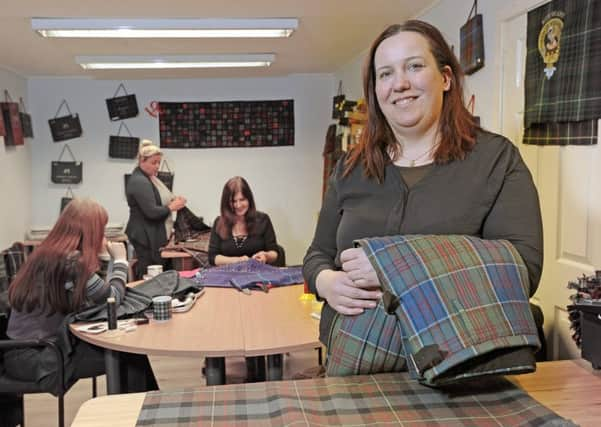Ethical working weaving its magic for Leith kiltmakers


Now Scotland’s kilt makers are on the warpath wanting better payment and conditions for their hours of hard work spent sewing – by persuading consumers to source “ethical” hand-stitched kilts.
A new enterprise, The Kiltmakery, is now making and selling hand-stitched “ethical kilts” produced in good working conditions and with decent pay.
Advertisement
Hide AdAdvertisement
Hide AdKilt maker Amanda Moffet, one of directors of The Kiltmakery at ScotClan clan centre, in Sandport Place, Leith, said it was time to bring the craft “out of the shadows” and was part of the worldwide movement ensuring clothing is produced ethically and not regarded as disposable .
Moffet also said that whilst there are kilt-making establishments in Scotland paying workers a good salary, such as 21st Century Kilts in Edinburgh, many people making hand-stitched kilts are working in isolation.
Others have faced a change in personal circumstances, such as bereavement or unemployment and the work is vital to their family budget.
She also said many are poorly paid for their work – a hand-stitched kilt costs £400 and takes three days but Moffet said she had heard of a women paid just £30 £40 per kilt.
Advertisement
Hide AdAdvertisement
Hide Ad“The way many people buy a kilt is to go into a shop, even high-end kilt shops where they pay top dollar or order online. They may be marketed as “hand-stitched” but can be just “hand-finished” by a chain of “invisible” people who don’t know who has ordered the kilt,” said Moffet.“In contrast, completely hand-stitched kilts are usually made in workshops or by free-lancers and take three whole days to make.”
Moffet said she would like to see people seek out ethical kilts in the same way many people choose shops selling conflict-free diamonds for engagement rings or jewellery. “People can go directly to a kilt maker, using Facebook, or ask around. If you’re spending around £400 on a kilt you want to make sure the measurements are taken by someone who knows what they are doing, it is good quality and not outsourced.”
The Kiltmakery’s last big order was 220 hand-stitched kilts for the Kiltie Band in Florida who came over and visited them before putting in their order.
Ian Chisholm, a founding member of the Kilt Makers’ Association of Scotland, said that people with hand-tailoring kilt making skills were a highly valuable workforce. “It is important they are appreciated”.
Advertisement
Hide AdAdvertisement
Hide AdUde Joe-Adigwe, regional organiser with the union GMB Scotland, said it could empower skilled workers. He said: “Any initiative which is going to help those on lower incomes is a positive step forward. These people deserve fair pay or a good price for their product. With the spread of automation, so many jobs are disappearing but these are time-honoured skills which must be preserved.
“My one reservation is that care needs to be taken that we do not see a repeat of the gig economy and zero-hours contracts.”